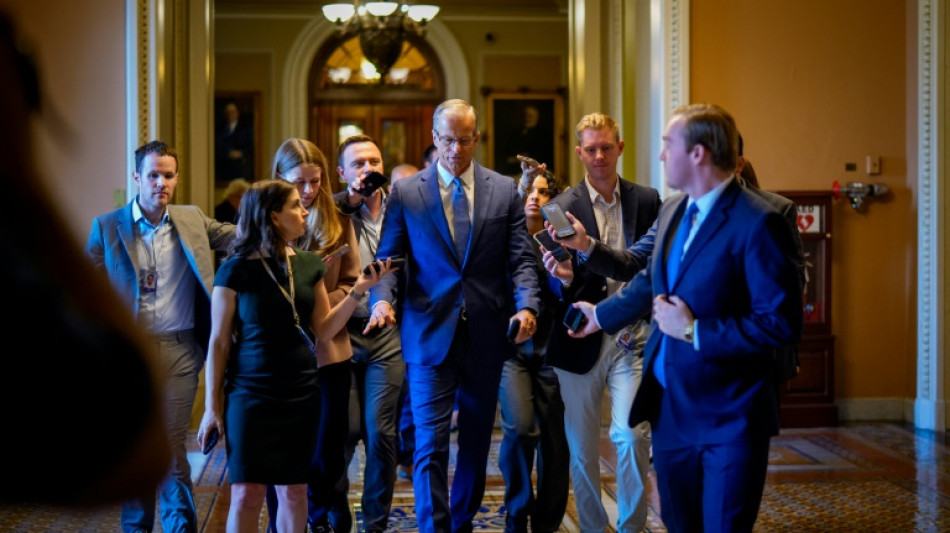

US Senate push to pass Trump's unpopular spending bill enters second day
Republican senators struggled Tuesday for a second day to pass President Donald Trump's flagship spending bill, which would slash welfare programs for the poor while adding an eye-watering $3 trillion to the national debt.
The president wants his "One Big Beautiful Bill" -- which polls show is wildly unpopular among Americans -- to extend his expiring first-term tax cuts at a cost of $4.5 trillion.
Spending will be ramped up for the military and Trump's project for mass deportations of undocumented migrants and border security.
To pay for that, Republican senators are seeking to force through draconian cuts to the social safety net and gutting of clean energy and electric vehicle subsidies -- a factor triggering a bitter public feud between Trump and Tesla founder and mega-donor Elon Musk.
Around $1 trillion in subsidized health care would be stripped from millions of the poorest Americans. And even with the spending cuts, the bill would still add more than $3.3 trillion to the nation's already yawning budget deficits over a decade.
Trump wants the package on his desk by Independence Day on Friday.
Its journey through the Republican-controlled Senate has been at a glacial pace, however, as senators held a so-called "vote-a-rama" -- a session allowing members to offer unlimited amendments before a bill can move to final passage.
That began Monday, and was still grinding on Tuesday morning.
"It's tough," Trump told reporters at the White House before leaving to visit a migrant detention center in Florida. "We're going to get there."
Even if the bill squeaks through the Senate, it still needs a vote in the House of Representatives, where Democrats are again uniformly opposed and several rebels in the slim Republican majority threaten to oppose.
- 'Money to be saved' -
Trump's insistence on the bill has put the more vulnerable Republicans in a difficult position.
Polls show the bill is among the most unpopular ever considered across multiple demographic, age and income groups. Democrats expect to leverage public anger -- particularly over the health care cuts -- in 2026 midterm elections when they hope to retake the House.
Studies show the bill would ultimately pave the way for a historic redistribution of wealth from the poorest 10 percent of Americans to the richest.
Cuts to the Medicaid program -- which helps low-income Americans get coverage -- as well as the Affordable Care Act would see nearly 12 million more uninsured people by 2034 in a country with notoriously expensive health care, independent analysis shows.
Senate Democrats have focused their amendments on highlighting the threats to health care, as well as cuts to federal food aid programs and clean energy tax credits.
Many Republicans have shown discomfort. Fiscal hawks believe that spending cuts should go even deeper, while moderates are alarmed at the impacts in their own states.
Republican Senate Majority Leader John Thune can only lose one more vote to get a win, with conservative Rand Paul and moderate Thom Tillis already on the record as Republican rebels.
The bill has also reignited the feud between Trump and his former adviser-turned-critic Musk, the world's richest person.
Musk -- who already had an acrimonious public falling out with the president this month over the bill -- has repeatedly slammed its cost, and Monday renewed his calls for the formation of a new political party as voting got underway.
Trump, in turn, threatened the government subsidies to Musk's cutting-edge companies SpaceX and Tesla.
"Elon may get more subsidy than any human being in history, by far, and without subsidies, Elon would probably have to close up shop and head back home to South Africa," he posted on Truth Social early Tuesday.
"No more Rocket launches, Satellites, or Electric Car Production, and our Country would save a FORTUNE," he threatened. "BIG MONEY TO BE SAVED!!!"
S.Dennehy--NG



